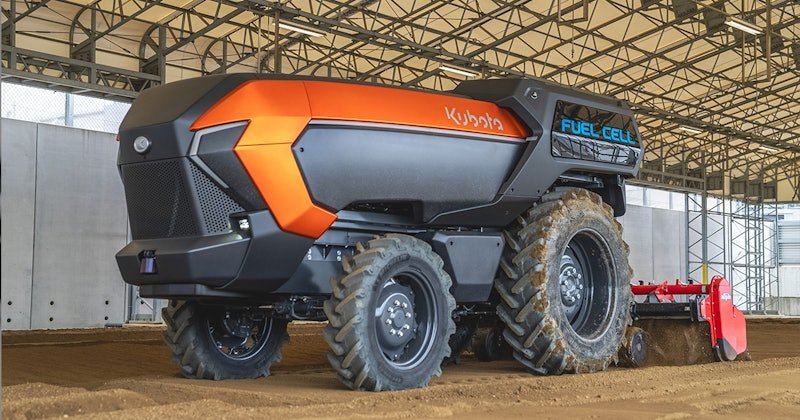News List
Kubota Unveils World’s First Autonomous Hydrogen Fuel Cell Tractor at Expo 2025 Osaka Kansai

Japanese agricultural machinery giant Kubota has introduced the world’s first autonomous, hydrogen fuel cell tractor, marking a groundbreaking step toward sustainable and smart farming. The concept model, unveiled at Expo 2025 Osaka Kansai, aims to address two of the most pressing challenges facing global agriculture: climate change and labor shortages.
Operating on compressed hydrogen, the tractor uses high-pressure tanks to store fuel, which is pumped like conventional diesel or gasoline. Kubota announced that demonstration tests will soon be conducted across Japan to assess the tractor’s real-world efficiency, performance, and feasibility.
According to the company, “This concept tractor integrates Kubota’s long-standing expertise in agricultural machinery with cutting-edge innovations in hydrogen fuel cell systems, autonomous driving, and remote operation.”
Hydrogen Power and Performance
The hydrogen-powered system delivers performance equivalent to a 100-horsepower diesel engine, utilizing two separate motors — one for vehicle propulsion and another for power take-off (PTO) to operate farming implements. The hydrogen reacts with oxygen in a solid polymer fuel cell module, generating electrical energy and water as a by-product. This means the tractor produces zero emissions, with water as the only exhaust, underscoring its environmental benefits.
Autonomous and Remote-Controlled Operation
A key feature of Kubota’s innovation is autonomous driving technology, designed to eliminate the need for an onboard operator. Equipped with AI-powered cameras and advanced sensors, the tractor can navigate fields, detect obstacles, and perform agricultural tasks independently.
Additionally, operators can control the machine remotely through a monitoring station featuring a steering wheel, foot pedal, and large display screens. For closer interaction, a portable, laptop-style device with a shoulder harness allows for manual operation in the field.
Interestingly, the tractor has no driver’s cabin, emphasizing its fully autonomous nature. Measuring approximately 14.4 feet in length, 7.2 feet in width, and 7.6 feet in height, the design prioritizes technology integration over manual control.
Field Testing and Sustainable Vision
Field evaluations have already begun in Japan to test the model’s autonomous navigation, hydrogen fueling efficiency, and performance under real agricultural conditions. Kubota aims to refine the design for commercial readiness in the coming years.
The hydrogen fuel cell tractor represents a major leap toward carbon-neutral farming, combining sustainability, operational efficiency, and labour savings. As agricultural industries worldwide seek greener, smarter solutions, Kubota’s innovation sets a new benchmark for the future of mechanized farming.
